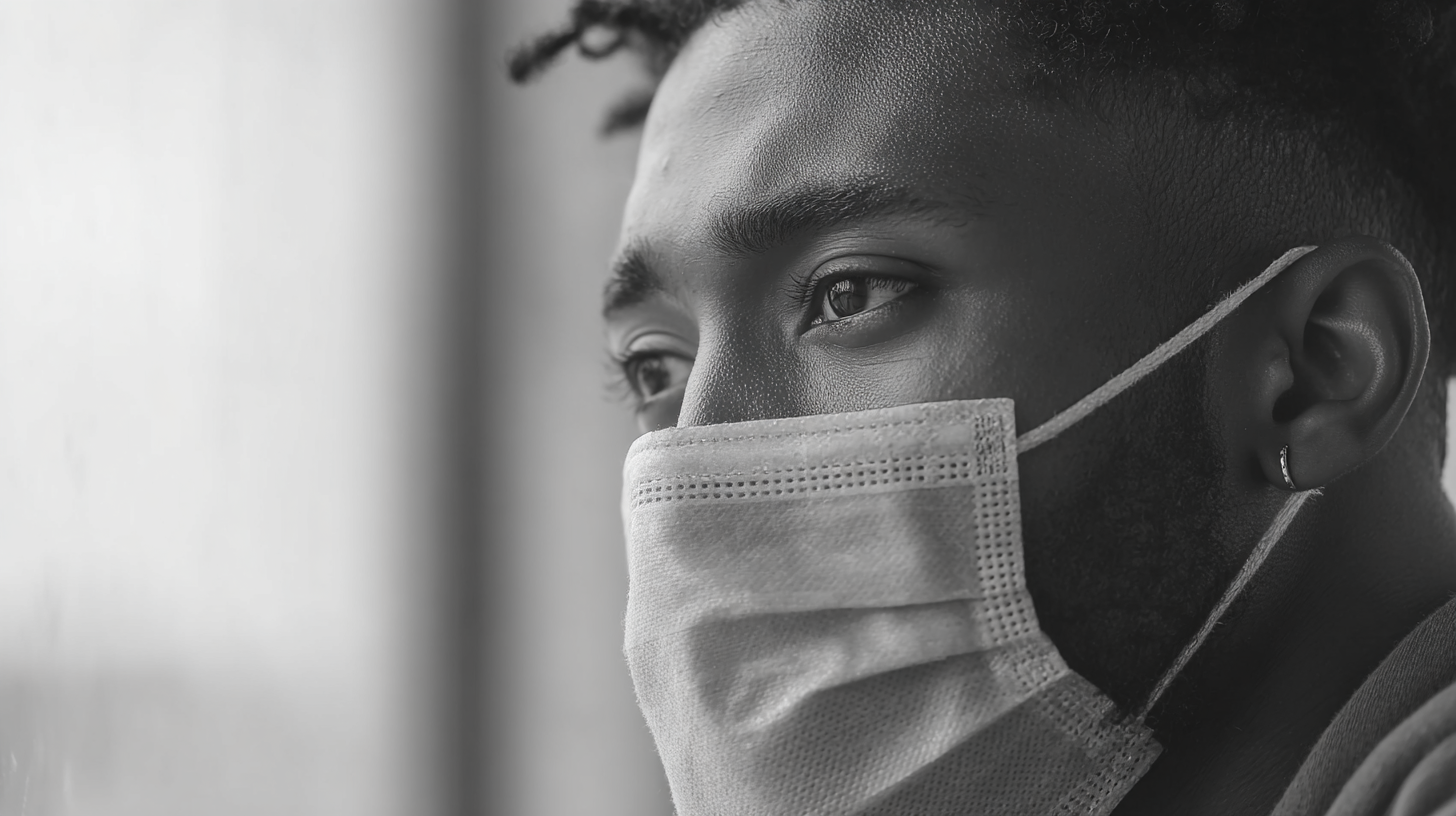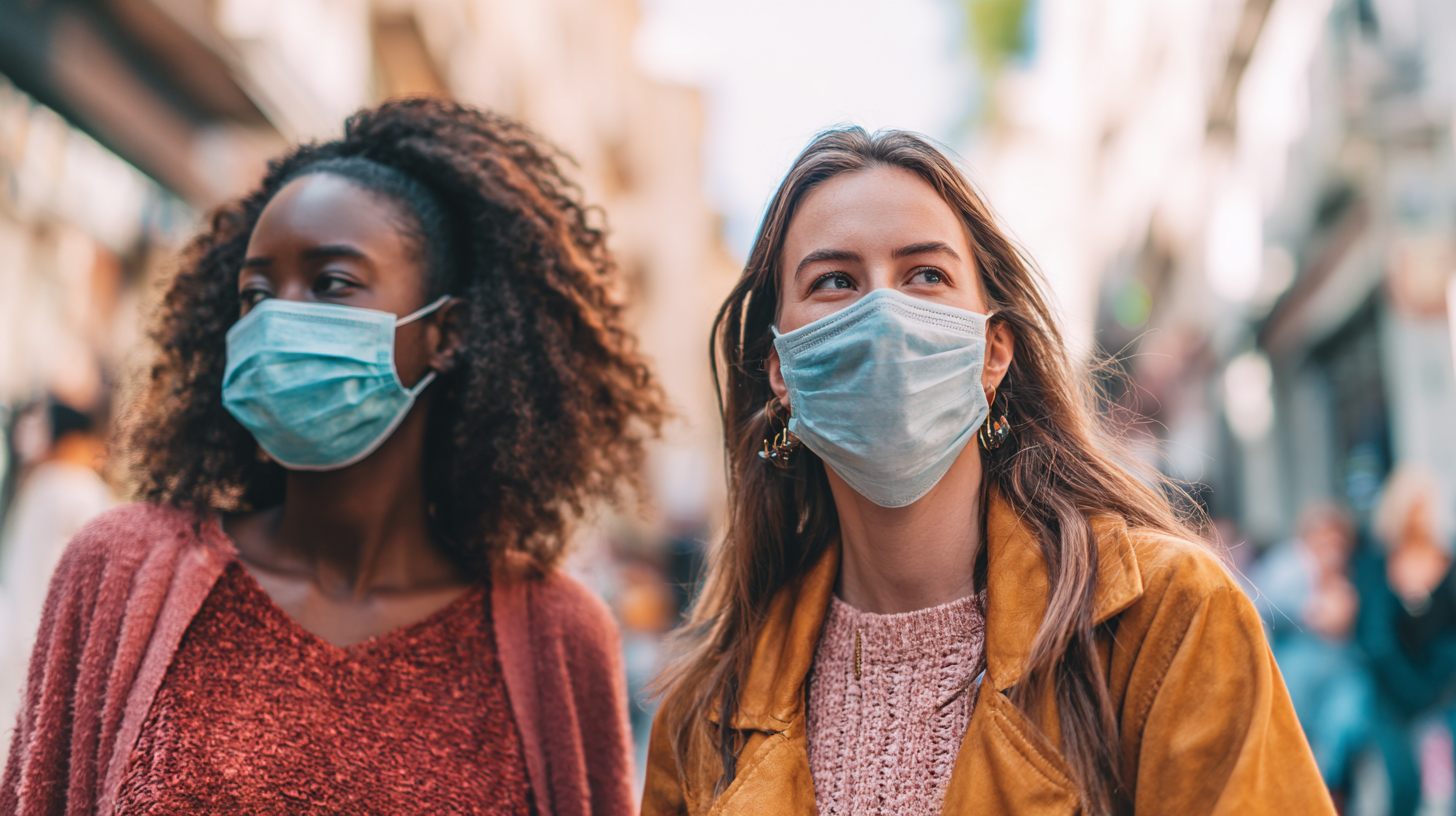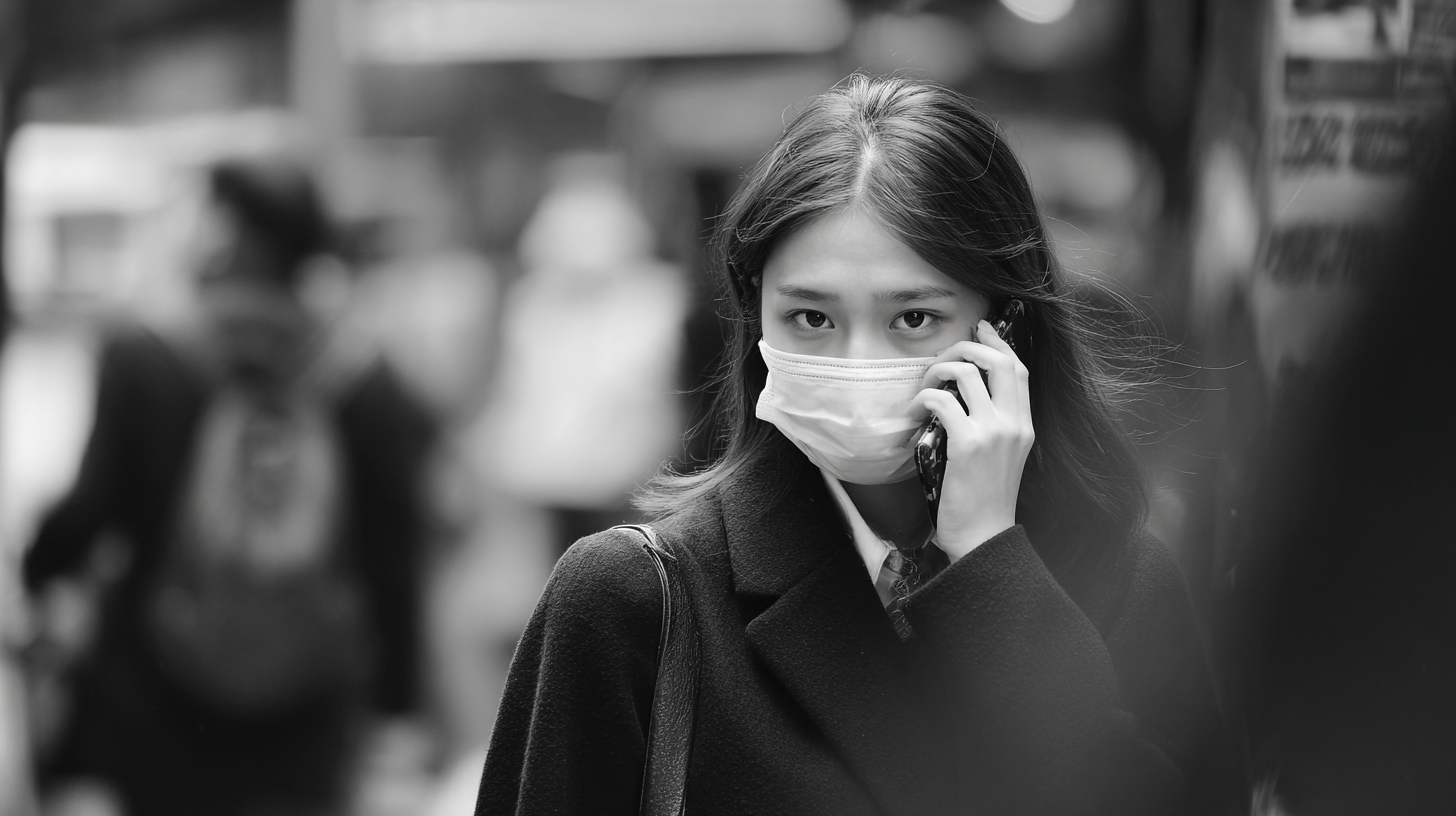

In recent years, the significance of face masks has been underscored by various health organizations worldwide, notably in the context of global health crises like the COVID-19 pandemic. According to a report from the World Health Organization, wearing face masks can reduce virus transmission by up to 85%, making them a critical tool for safeguarding public health. Furthermore, the Centers for Disease Control and Prevention (CDC) highlights that masks can protect not only the wearer but also those around them, particularly in crowded or high-risk environments. This blog will delve into the characteristics and appropriate applications of various types of face masks, from N95 respirators to cloth coverings, while providing actionable insights on how to select and utilize them effectively. As global health leaders continue to advocate for their usage, understanding the different types and their functionalities is essential for both individual and community protection.

 In the context of global health, the critical role of face masks in preventing disease spread among global leaders cannot be overstated. As influential figures in public health management, leaders must set an example by adhering to safety protocols, including the consistent use of masks. This simple yet effective measure is vital in mitigating the transmission of infectious diseases, especially in crowded gatherings and formal meetings where maintaining social distance can be challenging.
In the context of global health, the critical role of face masks in preventing disease spread among global leaders cannot be overstated. As influential figures in public health management, leaders must set an example by adhering to safety protocols, including the consistent use of masks. This simple yet effective measure is vital in mitigating the transmission of infectious diseases, especially in crowded gatherings and formal meetings where maintaining social distance can be challenging.
To maximize effectiveness, leaders should consider wearing high-quality masks that provide adequate filtration without compromising comfort. Opting for masks with multiple layers, such as surgical masks or N95 respirators, ensures better protection against airborne particles. Additionally, maintaining proper mask hygiene is essential; masks should be washed or disposed of regularly to ensure they offer optimal safety.
Moreover, it is essential for global leaders to engage in public health education. Providing clear communication about the importance of mask-wearing can foster a culture of safety and responsibility. Promoting awareness about how masks can greatly reduce the risk of disease transmission not only protects individuals but also reinforces the collective commitment to global health.
The significance of face masks in public health has become increasingly clear through extensive data analysis. Evidence shows that effective face masks can reduce the transmission rates of infectious diseases by up to 70%. This astounding figure highlights the critical role face masks play in not only protecting individuals but also in safeguarding communities by minimizing the spread of viruses during outbreaks.
Data-driven insights illustrate that when populations adopt mask-wearing protocols, especially in crowded and high-risk environments, the rate of infection plummets. This is particularly important for global health leaders who must prioritize strategies that effectively mitigate health crises. By utilizing evidence-based practices, health officials can advocate for face mask usage, thus fostering a culture of safety and accountability within communities.
As face masks serve as a first line of defense, they empower citizens to take an active role in public health while enabling professionals to focus resources on vaccination and treatment efforts. In an age where health threats can spread rapidly, investing in the widespread use of effective face masks stands out as a proven strategy for reducing transmission and promoting global health resilience.
The safety and welfare of healthcare workers have become central concerns during the COVID-19 pandemic. A systematic review indicates that wearing face masks significantly reduces the transmission of infected respiratory particles, which is crucial for protecting those on the front lines. Healthcare workers are five times more likely to experience workplace violence compared to employees in other sectors, with a staggering 73% of all nonfatal incidents occurring within healthcare environments. This environment of heightened risk makes effective personal protective equipment, including face masks, not just beneficial but essential for the safety of these workers.
Moreover, studies reveal that the psychological and physiological demands placed on healthcare workers are substantial. High stress levels and challenging working conditions can lead to burnout and poor health outcomes. The routine use of masks can contribute to mitigating the risk of infection and creating a sense of safety, allowing healthcare professionals to focus on their critical roles without the added fear of contracting the virus through unprotected exposure. Research also emphasizes that consistent adherence to mitigation strategies, such as mask-wearing, is vital in reducing the overall transmission rates and fatalities associated with COVID-19, thereby underscoring the importance of masks in safeguarding healthcare workers.

The global market for non-invasive vent masks is projected to reach $217.7 million by 2025, with an estimated compound annual growth rate (CAGR) of 4.3%, climbing to $304.9 million by 2033. This upward trend emphasizes the growing demand for high-quality face masks in the wake of the COVID-19 pandemic, which has dramatically reshaped manufacturing and supply chain dynamics worldwide. Recent industry reports indicate a wide variety of mask types currently available, such as surgical masks, industrial dust masks like KN95/N95, and general-purpose protective masks.
The pandemic has accelerated a paradigm shift in how companies approach production. Businesses are increasingly recognizing the need for localized and diversified supply chains to mitigate risks associated with global dependencies. In response to geopolitical tensions and nationalistic policies, many manufacturers are reconsidering their sourcing strategies—moving away from reliance on countries like China and exploring domestic production options. This transformation is crucial as companies harness digitalization to adapt swiftly to evolving market needs, ensuring they can deliver essential protective equipment efficiently and effectively.
This chart illustrates the increasing demand for high-quality face masks across different regions globally. The data reflects the total production volume in millions of masks from 2018 to 2023.
The importance of regulatory standards for face masks cannot be overstated, especially in the context of public health. These standards serve as a benchmark to ensure that masks provide effective protection against pathogens. Regulatory bodies like the FDA and WHO continuously evaluate and revise these standards to keep pace with emerging health crises, ensuring that the masks on the market can genuinely enhance safety in communities.
When selecting face masks, there are several tips that can help you choose the right option. First, look for masks that have been tested and certified by recognized organizations. This ensures that the mask meets specific filtration and leakage standards. Additionally, consider the fit of the mask – it should cover both the nose and mouth snugly without gaps. A well-fitted mask is critical in preventing airborne particles from entering or escaping.
Furthermore, it's essential to pay attention to the materials used in masks. Opt for masks with multilayer construction, as these are more likely to block droplets effectively. Masks made from breathable fabric can enhance comfort, encouraging more consistent use. Remember, the best face masks are those that not only comply with regulatory standards but also align with public health recommendations, contributing to collective safety.